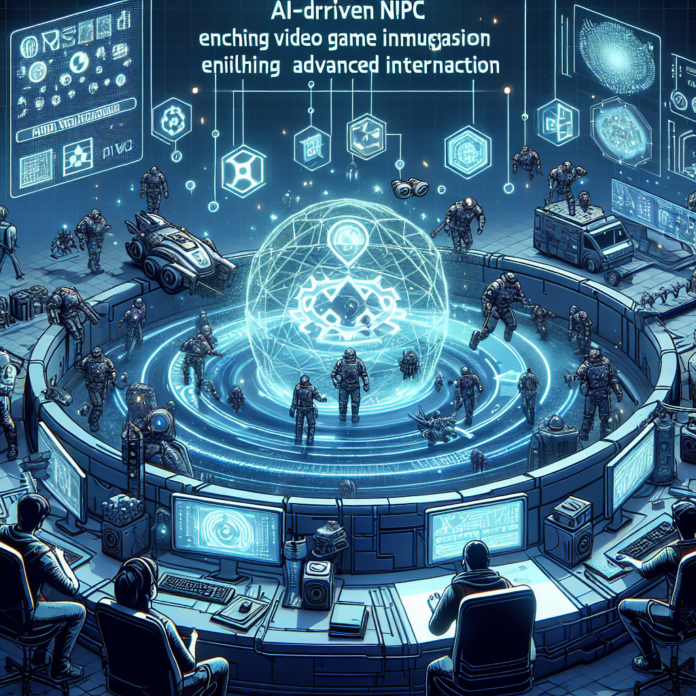Can AI Enhance Video Game Immersion with Interactive NPCs?
How AI is Revolutionizing Immersion in Video Games
The video game industry is on the cusp of a revolutionary transformation, driven by advancements in artificial intelligence (AI). As game developers seek to create more immersive experiences, many are turning to AI technology to enhance the interactivity and realism of non-player characters (NPCs). This shift is not only changing the way games are played but also reshaping the entire landscape of game design and player engagement.
The Evolution of NPCs
Traditionally, NPCs in video games have been limited by pre-set scripts and linear behavior patterns, often resulting in repetitive and predictable interactions. However, with the integration of AI, these characters are evolving into more dynamic and responsive entities. AI-driven NPCs can now analyze player behavior, learn from interactions, and adapt their responses in real-time, providing a more personalized and engaging gaming experience.
AI Technologies Fueling Change
Several AI technologies are being employed to enhance NPCs. Natural Language Processing (NLP) enables NPCs to understand and respond to player queries more naturally, creating a seamless dialogue experience. Machine learning algorithms allow NPCs to develop unique personalities and decision-making capabilities, making them more lifelike and less predictable. Furthermore, AI can be used to generate vast, complex narratives that adapt to players’ choices, enhancing the overall storytelling aspect of games.
Case Studies: Studios Leading the Charge
Several pioneering game studios are already implementing AI to create more immersive worlds. For example, Ubisoft is exploring AI-driven NPCs to offer players more varied and unpredictable gameplay experiences. Meanwhile, Electronic Arts is using AI to develop NPCs that can learn and evolve over time, creating a living, breathing game environment. These innovations not only enhance player engagement but also extend the replayability of games, as each playthrough offers new experiences.
Challenges and Ethical Considerations
Despite the potential benefits, the incorporation of AI in gaming also presents challenges. Developers must navigate technical hurdles such as ensuring AI systems can handle complex interactions and integrating AI seamlessly into existing game engines. Additionally, there are ethical considerations related to the use of AI, such as ensuring that AI-driven content respects player privacy and does not perpetuate harmful stereotypes.
The Future of AI in Gaming
As AI technology continues to advance, the possibilities for its application in video games are virtually limitless. Future developments may include fully autonomous NPCs capable of forming relationships with players, procedurally generated worlds tailored to individual playstyles, and even AI-driven game design that adapts to player feedback. As these innovations become mainstream, they will undoubtedly redefine the boundaries of what is possible in interactive entertainment.
In conclusion, AI is set to play a pivotal role in the future of video gaming. By enhancing the realism and interactivity of NPCs, AI promises to deliver unprecedented levels of immersion and engagement. As developers continue to push the boundaries of this technology, players can look forward to richer, more dynamic gaming experiences that challenge the imagination and redefine the art of storytelling in the digital age.

